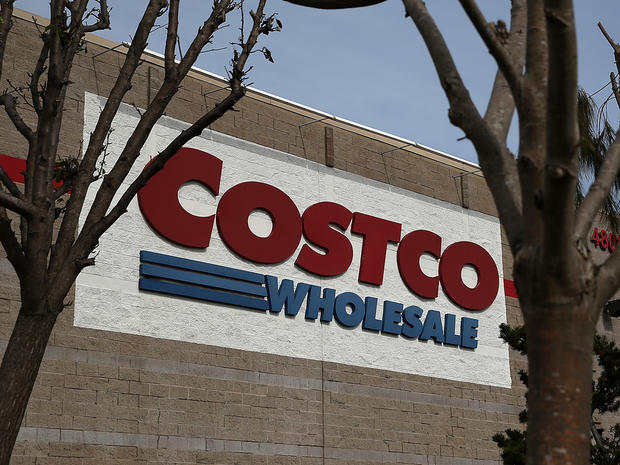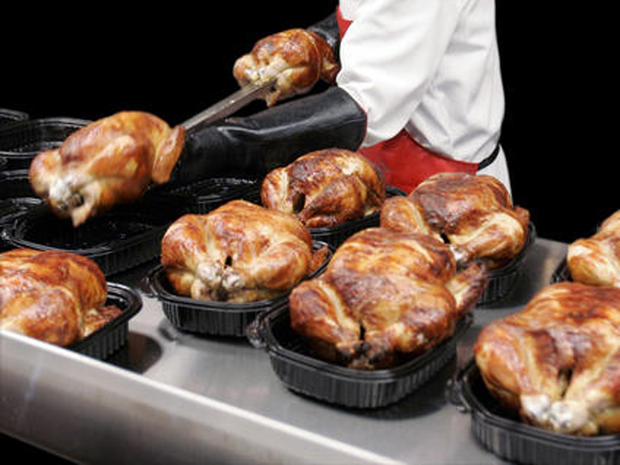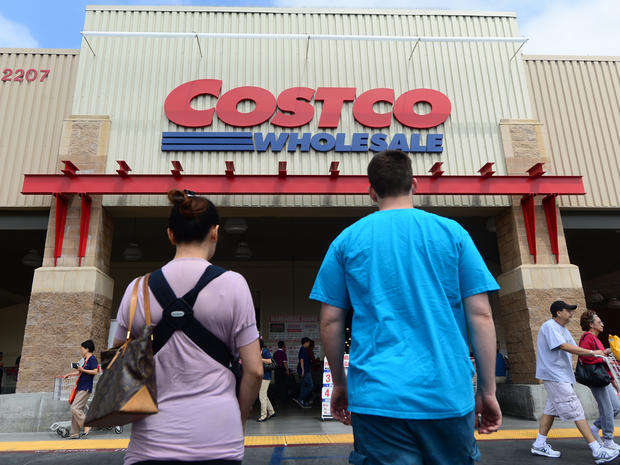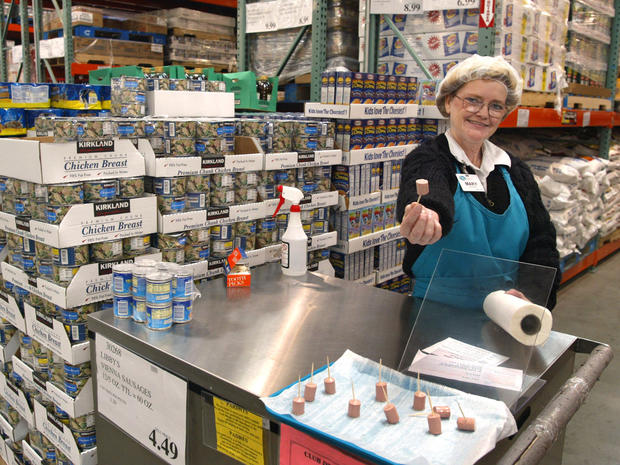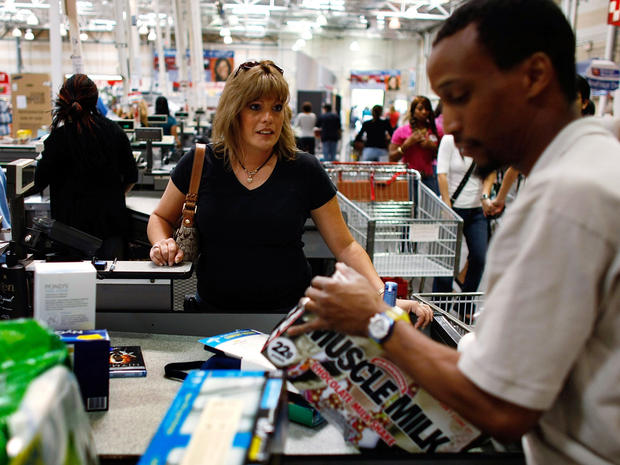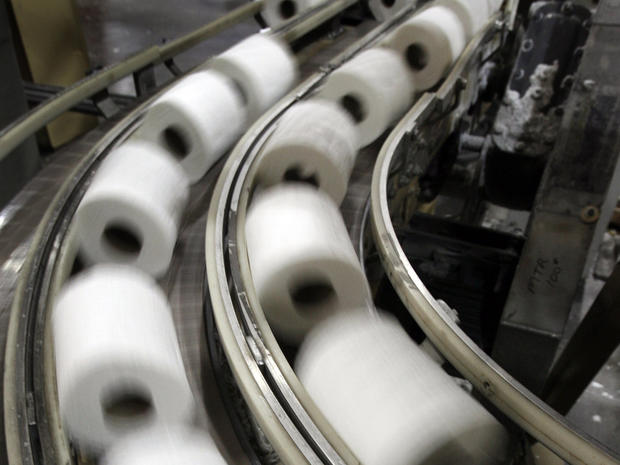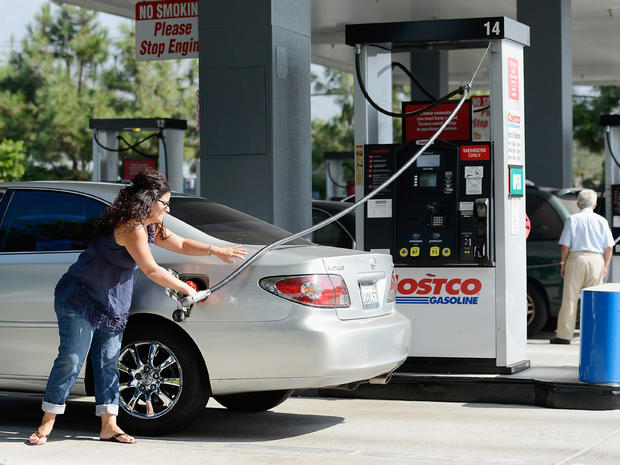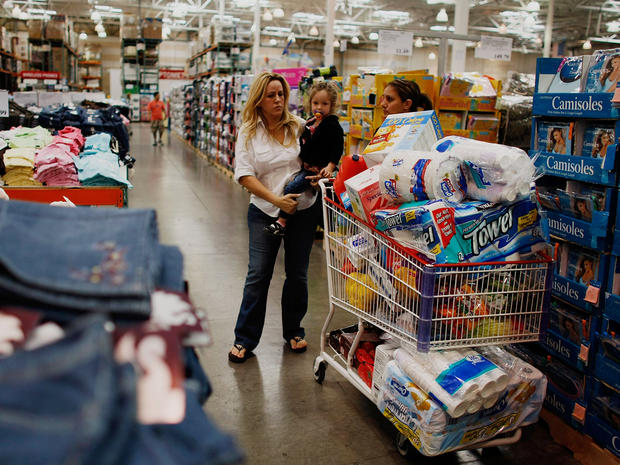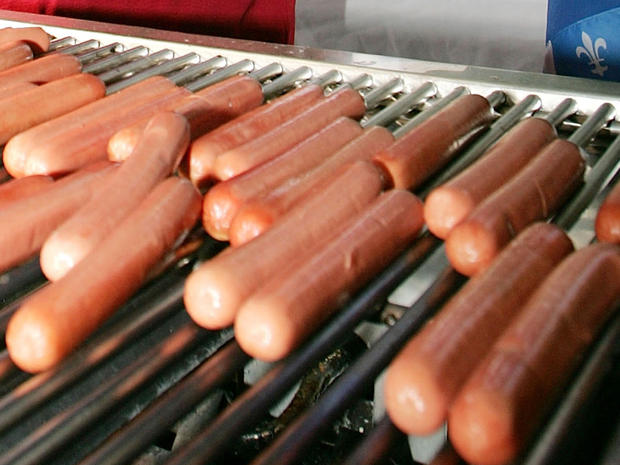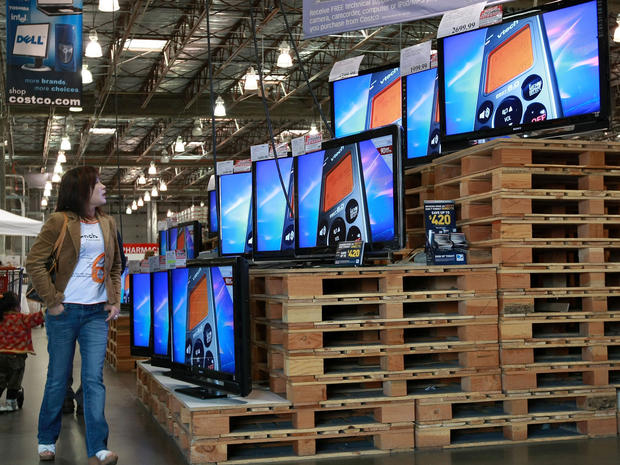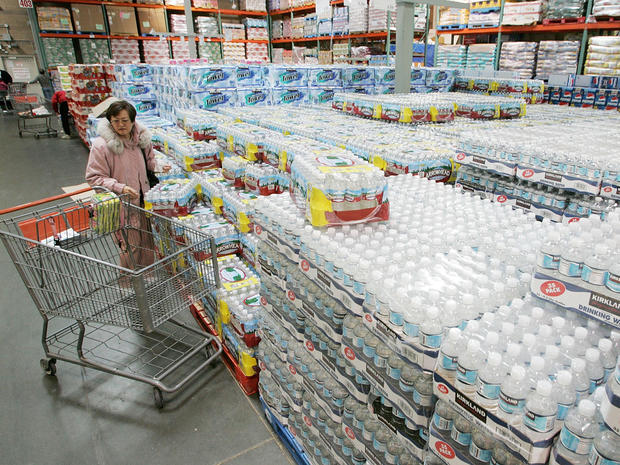12 things about Costco that may surprise you
Photo, file: Justin Sullivan/Getty Images
At a time when many stores are reporting a "retail funk" and puzzling over why the economic recovery isn't translating into more sales, Costco (COST) seems to be doing just fine.
The company reported strong June sales numbers last week. Customers spent more than analysts expected, and same-store sales were up 6 percent. The warehouse giant also is seeing new momentum with its net revenue and international sales.
Costco has always been a retail anomaly. It's run differently and it sells differently, and it's proud of it. There are competitors on all sides, including Walmart (WMT), Amazon (AMZN) and grocery chains, but no one can mimic Costco's operations. From its $1.50 hot dog-and-soda combo to the popular in-house Kirkland label, Costco sets itself apart from the rest of the retail crowd.
Despite its no-frills warehouse model, Costco is a complex and nuanced company that has been able to thrive in good times and bad. "All we're trying to do is sell stuff cheaper than anybody else, but there's a lot more work that goes into it," former CEO Jim Sinegal told CNBC.
Read on for 12 things you may not know about Costco.
Those rotisserie chickens are a big deal
Photo, file: AP/Paul Sakuma
Costco sells 60 million rotisserie chickens every year at $4.99 each. They are not a moneymaker for the company. In fact, poultry costs have skyrocketed over the last couple of years and "there's very little margin on it right now," chief financial officer Richard Galanti said last year.
Yet Costco continues to keep the price at $4.99. Why? Because those chickens are a big draw for customers searching for a quick dinner. The chickens are widely praised, and they even have their own Facebook page.
"You can't really beat the convenience of the Costco chickens when you're already there loading up on Charmin and gigantic blocks of Cheddar," wrote one commenter on Chowhound. "Economical as hell, which is no small consideration in this day and age."
Members are well off and loyal
Photo, file: Frederic J. Brown/AFP/Getty Images
Costco really has the ideal membership base. The average member is college educated, owns a home and earns about $100,000 a year, CNBC reports.
Members are extremely loyal, with an overall renewal rate at 90.6 percent, research firm Trefis reports. A third of those members are at the executive level, which means they pay double the standard $55 annual membership fee and get 2 percent cash back on their purchases. You have to spend a lot at Costco to make that executive-level membership pay off, and those customers do.
Costco's membership-fee revenue rose nearly 6 percent to $561 million in its last reported quarter. Money from the fees helps Costco pad its bottom line, and is one reason the chain can sell items at rock-bottom prices.
Members are aging
Photo, file: Joe Raedle/Getty Images
The down side of a wealthy, home-owning membership base? They're aging, and it's unclear that Costco can replace them with Generation X or millennials.
Amazon is much more in tune with millennials, The Motley Fool reports. Costco has shopped itself to Baby Boomers, placing its warehouses in higher-income areas. That strategy has worked well, but that's not where the millennials are.
Now, younger consumers are drifting to more urban areas where they don't necessarily need to own a car. They don't spend as much as Baby Boomers, and some would scoff at the idea of dropping hundreds of dollars on a bunch of bulk warehouse goods.
"So far, Costco has been good at thwarting the Amazon threat, but this might not be true when Baby Boomers age," writes Dan Moskowitz at The Motley Fool.
Employees like their jobs
Photo, file: Tim Boyle/Getty Images
We've all dealt with stereotypical retail employee, the cranky working stiff who tolerates customers just enough to collect that meager paycheck. Not so at Costco, where nearly 500 employees have given CEO Craig Jelinek a 92 percent approval rating on Glassdoor.com.
Employee pay has a lot to do with that. Costco pays hourly workers an average of $20.89 an hour, Businessweek reports. That compares to $12.67 an hour for Walmart. And about 88 percent of Costco employees have health insurance from the company.
"I just think people need to make a living wage with health benefits," Jelinek told the magazine. "It also puts more money back into the economy and creates a healthier country. It's really that simple."
About 15 percent of employees are unionized, but you don't see the same type of battles that other companies have with unions. "They are philosophically much better than anyone else I have worked with," a Teamsters executive tells Businessweek.
Stock is suffering
Photo, file: Joe Raedle/Getty Images
Costco shares have had an unimpressive year so far. Shares dipped to nearly $110 in February, and are just under the $118 mark they started at in January. That's nowhere near the 6.5 percent gain the Standard & Poor's 500 has seen in the same period.
The company's fortunes may be turning around, judging by the monthly sales gains it's been posting recently. But it's too early to tell. Investors will be paying close attention to the company's fiscal fourth-quarter earnings report, slated for Oct. 9.
Costco is obsessed with toilet paper
Photo, file: Jeff T. Green/Getty Images
Costco cares more about toilet paper than most retailers, and there's a good reason why: Toilet paper is the No. 1 product at the company.
It hires technicians to test toilet paper for thickness, strength and softness, CNBC reports. It sends merchandise managers to tour toilet paper mills, checking everything from paper quality to humidity levels to the water used in production.
"How can you not fall in love with a product that is the number one thing that you sell?" former CEO Jim Sinegal told CNBC.
Gas prices can hurt
Photo, file: Kevork Djansezian/Getty Images
Costco has tight control over most of its products except for one: Gasoline. Its gas stations, usually located adjacent to warehouse stores, often undercut competitors -- and as a result, can have long lines of waiting cars.
Costco can sell gas at between 6 cents and 12 cents below the market price, according to research firm Trefis. It discounts gas in the hopes that people will fill up and then head over to its stores.
But the volatile swings in gas prices don't help Costco. Gas is already a low-margin product, and climbing prices can turn gasoline into a money loser for the company. "When prices are going up a nickel a day, obviously we're getting hammered," Sinegal once said. So why keep selling gas? Because it increases the customer loyalty that Costco prizes.
Costco is a huge wine retailer
Photo, file: Justin Sullivan/Getty Images
The company sells more than $1 billion of wine each year, and is the largest seller of fine wines in the U.S.
Some of Costco's most notable wines are under its own in-house Kirkland label, such as the Signature Series Russian River Valley chardonnay and the Rutherford Meritage.
The retailer's wine buyer, Annette Alvarez-Peters, angered some wine fans in 2012 when she told CNBC that wine isn't that different from toilet paper or tin foil. "At the end of the day, it's just a beverage," she said.
Costco tricks you into buying more
Photo, file: Joe Raedle/Getty Images
Did you ever stop at Costco for one item, only to come out with a full cart? There's a reason for that. Costco has some clever tricks up its sleeve to get people to buy more than they planned.
One trick is putting all the fresh food in the back of the store, so that customers have to walk through a considerable amount of retail real estate to get there.
Another trick is not putting any signs on the aisles. So if you're hunting for printer paper, for example, and can't remember where exactly it is, you may end up wandering through aisles full of potential purchases.
The hot dog and soda is another big deal
Photo, file: Carlo Allegri/Getty Images
Costco has kept the $1.50 price for a hot dog and a soda for a quarter of a century, through five presidential administrations, according to The Chicago Tribune. There is no inflation, apparently, in the retailer's food court.
Costco sells more than 100 million of those combos a year. "It's our job to preserve the integrity of the price point," vice president of food services Alan Bubitz told beverage industry site BevNET.
Costco has fewer than 4,000 items
Photo, file: Justin Sullivan/Getty Images
You don't get much choice at Costco, and that's exactly the way executives want it. The typical warehouse carries fewer than 4,000 items, compared to around 100,000 separate items at the typical Wal-Mart supercenter.
Costco gives you one kind of ketchup, for example, take it or leave it. The beauty of this model is that the company has multiple vendors bidding to get that single prized spot, and Costco gets to negotiate its costs down.
Markup is never more than 15 percent
Photo, file: Justin Sullivan/Getty Images
Costco doesn't mark up any item more than 15 percent. Membership fees give it some financial freedom to keep prices low, along with its tough negotiations with vendors.
Costco doesn't mark up its executive pay by much, either. CEO Craig Jelinek earned $5.4 million in compensation in 2013, compared to $26 million that year for Wal-Mart CEO Doug McMillon.
